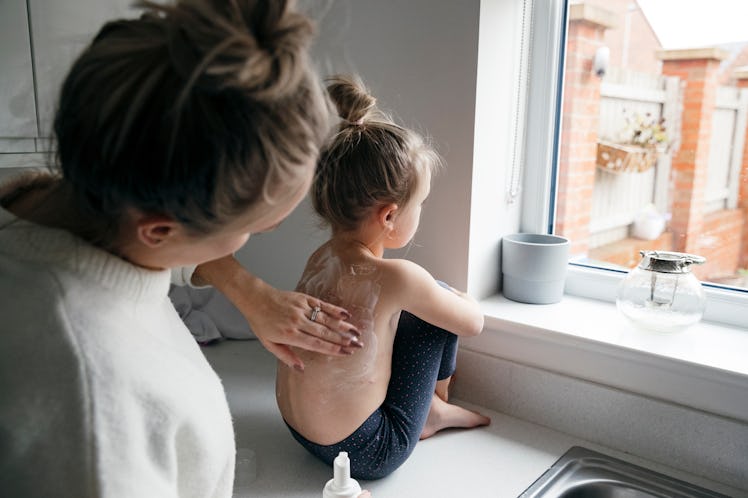Can Chickenpox Kill You? The Answer Is Scary
The chickenpox once killed a hundred kids a year. The reason it doesn’t now is because more kids get the vaccine than the wild virus.

Although parents once feared chickenpox in infants, babies, and toddlers, the number of deaths and serious injuries caused by chickenpox has decreased sharply since the introduction of an effective chickenpox vaccine. Still, chickenpox remains a potentially fatal disease that parents need to treat with respect. Will most infected kids recover quickly? Absolutely. But, let’s be clear, kids can die of chickenpox, which is a serious disease.
“Before there was a chicken pox vaccine, which was introduced in 1995, every year in this country there would be a few million cases in children under 15,” explains Paul Offit, M.D., director of the Vaccine Education Center at Children’s Hospital of Philadelphia. “There would be 10,000 hospitalizations and roughly 100 deaths. Of those 100 deaths, 70 would occur in perfectly healthy children.”
How Chicken Pox Can Be Fatal to Kids
Chickenpox deaths have plummeted since the development and broad deployment of the vaccine. But access to a vaccine hasn’t fundamentally changed the disease itself, which is no less deadly and no less likely to smooth the way for opportunistic bacterial infections that take root in open sores, notably, staphylococcus and streptococcus.
“These cause something called necrotizing fasciitis, which is a severe infection that can cause loss of limbs,” Offit says. “Chickenpox can also cause pneumonia, which can be fatal. The virus can also infect the brain.”
Which is all to say that chickenpox in kids remains dangerous. Up until the 1990s, chickenpox deaths were relatively common in the U.S. There have not been major medical breakthroughs for a cure since that time. To the contrary, some of the bacteria responsible for the chickenpox deaths now have antibiotic-resistant forms that can cause even greater complications.
Symptoms and Stages of Chickenpox in Kids
Contracting chickenpox places a child at unnecessary risk for extreme complications. The disease is extraordinarily unpleasant, leaving sufferers incredibly uncomfortable. Symptoms can include fever resulting in body aches and pains, tiredness, headache, loss of appetite and a full body rash that can spread to sensitive areas like the genitals and the inside of the mouth.
Children who have chickenpox should stay out of school for up to 5 days. The disease may be relatively common, but it should be taken seriously.
“People say, ‘I had chickenpox and I’m fine,’” Offit remarks. “That’s true because they are still alive. The hundreds of people who used to die of chickenpox are not around to tell their story.”
This article was originally published on